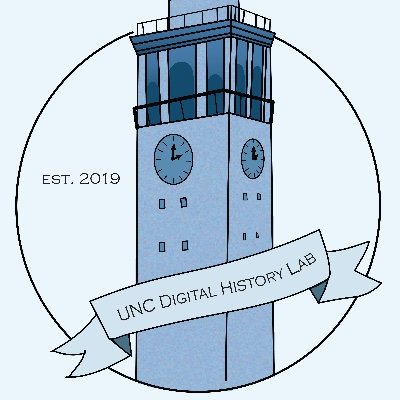 Here at UNC, a major topic on everyone’s mind this semester has been Covid and its effects on academic life. Students have borne most of the brunt of transitioning to a virtual learning environment, but professors in the Department of History have also made significant adjustments. Associate Chair Professor Ben Waterhouse and Director of Undergraduate Studies Professor Brett Whalen spoke with us about strategies they have used to confront the novel demands and opportunities posed by the virtual environment. Waterhouse reaffirms what many in the department already know: though students in his classes have been “extraordinarily motivated, participatory, friendly, and collegial,” virtual learning is not anyone’s preference. Nevertheless, because faculty appreciate “the wide range of personal situations that students find themselves in,” they have largely responded to students’ unforeseen circumstances with flexibility, patience and compassion.
Here at UNC, a major topic on everyone’s mind this semester has been Covid and its effects on academic life. Students have borne most of the brunt of transitioning to a virtual learning environment, but professors in the Department of History have also made significant adjustments. Associate Chair Professor Ben Waterhouse and Director of Undergraduate Studies Professor Brett Whalen spoke with us about strategies they have used to confront the novel demands and opportunities posed by the virtual environment. Waterhouse reaffirms what many in the department already know: though students in his classes have been “extraordinarily motivated, participatory, friendly, and collegial,” virtual learning is not anyone’s preference. Nevertheless, because faculty appreciate “the wide range of personal situations that students find themselves in,” they have largely responded to students’ unforeseen circumstances with flexibility, patience and compassion.
Whalen strikes an upbeat note in echoing the sentiments of his colleagues. He observes that the “sense of community and connection” that history faculty value so highly in the classroom takes longer to develop over Zoom. Notably, virtual learning has made it harder for some of the more reticent students in his classes to break through the initial shyness that most students feel in seminar courses. The lack of face to face class time has made it harder for him to “draw the more removed students into the conversation.” Nevertheless, Whalen has tried to make the best of the situation and to serve as a resource for colleagues as they navigate the rigors of adapting to remote learning. Outside of making tutorial videos on virtual teaching and teaching undergraduate seminars, Whalen has remained committed to his own scholarly work. As a result, last summer Whalen wrote and self-published a book on the Black Death. One cannot help but to draw comparisons!
Despite the disruption that Covid has caused on campus, much has gone according to plan. For example, the department’s “capstone” projects for honors students have been facilitated by the speed with which the university library system took advantage of its substantial online infrastructure to digitize many of its collections for undergraduate research. Teaching Assistant duties have also been constrained by the new rigors of online teaching, and professors have been careful not to overburden their TAs with extra uncompensated work. The Digital History Lab, which has been integral to the transition to virtual learning, has made its many resources available to teaching staff, laying all the early uncertainties about virtual teaching soundly to rest. Finally, as Waterhouse notes, the Department has afforded its teaching staff with the same degree of autonomy and discretion granted to them in past semesters. While much is (and will likely remain) uncertain, the UNC History Department is investing great energy into guaranteeing a world class learning and research experience for undergraduates enrolled in its courses.
